|
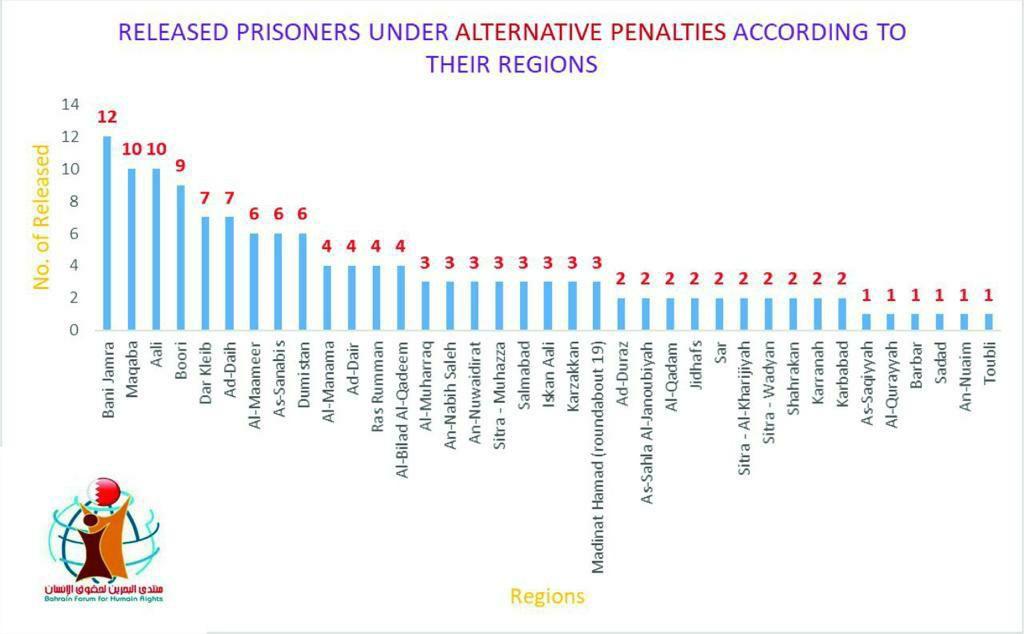
The Bahrain Forum for Human Rights: 42% of the 57 pardoned political prisoners had less than two years remaining, and their total does not exceed 6% of the 901 prisoners, the majority of whom were convicted of criminal crimes Preamble The deteriorating prison conditions in Bahrain represent the other side of arbitrary detention. Prisoners are held in correctional institutions that do not meet the standard minimum rules for the treatment of prisoners, and, on one hand, provide a fertile environment for torture and ill-treatment in order to extract confessions, and on the other hand, represent a tool of revenge against the opposition masses. After the Bahraini authorities announced the start of the process of releasing 1,486 inmates – coinciding with the transformation of the new Coronavirus into a pandemic threatening health security of various countries of the world – and the security authorities failed to adopt a transparent mechanism to inform the national and international public opinion about the nature of the releases carried out by the Royal Pardon or the application of the Alternative Penal Code, the Bahrain Forum for Human Rights (BFHR) monitored the release of political prisoners throughout the last period between March 11 and April 30 by studying 512 cases of prisoners of conscience. Numerical Summary The BFHR said that 512 cases of release of prisoners of conscience were monitored between March 11 and April 30 according to the following classification: royal pardon (57 cases), alternative penalties (139 cases), end of sentence (6 cases), end of arrest period and appearance before judicial authorities (9 cases), release (1 case), in addition to (1 case) from the Criminal Investigations Directorate. The details of (299 cases) released by alternative penalties, according to preliminary information, are being examined. The BFHR noted that, with reference to the Attorney General's statement on April 12 about completing the release of 1,793 inmates, the outcome regarding political prisoners is as follows: 6% is the percentage of political prisoners released by the royal pardon which was applied on 901 prisoners, and 46.1% of those released by alternative penalties are political prisoners. 26.1% of the 1,793 released prisoners were prisoners of conscience, which means that the majority of those released by the royal pardon decree or the Alternative Penal Code are criminal-cases prisoners. Data analysis of 139 cases released under alternative penalties According to the BFHR’s monitoring, 139 prisoners, belonging to 37 regions in Bahrain, were released with alternative penalties between March 11, 2020 and April 5, 2020. The remainder of the prison sentences of 127 of 139 released prisoners was determined, which ranged between a maximum of 5 years and a minimum of two days, at an average rate that is closest to one year and 17 days, the BFHR added. The numbers of those released and their remaining periods are as follows: 4 to 5 years (4 people), 2 to 3 years (26 people), more than one year and less than two years (23 people), 10 to 11 months (8 people), 6 to 9 months (11 people), 3 to 5 months (29 people), one to two months (12 people), more than 20 days and less than a month (5 people), 14 to 18 days (4 people), and 2 to 7 days (5 people). Data analysis of 57 cases released under the Royal Pardon As for those released by a royal pardon, they numbered 57 people, the BFHR added. They were released during four consecutive days from March 14, 2020 to March 17, 2020. They are from 29 regions in Bahrain. The BFHR further said that the remainder of the prison sentences of 30 out of 57 released people was determined, which ranged between a maximum of 7 years and 9 months and a minimum of two months and 7 days, at an average rate that is closest to two years, 11 months and 18 days. The numbers of those released and their remaining periods are as follows: • More than 7 years (two people) • 4 to 6 years (3 people) • 2 to 3 years (17 people) • More than 1 year and less than 2 years (7 people) • One person had 2 months and 7 days left Conclusion Based on the foregoing information, it is clear that the official authorities are manipulating the numbers of those released by integrating the number of those pardoned with those of alternative penalties. Meanwhile, the percentage of political prisoners is very low, at the time that there are more than 4000 prisoners of conscience held in harsh conditions and in overcrowded buildings. While the BFHR renewed the demand for releasing all prisoners of conscience, Hussein Nooh, head of monitoring and documentation at the BFHR, emphasized that the application of alternative penalties against prisoners of conscience is a step that lacks respect for human rights, stressing the inherent right of prisoners of conscience to freedom unconditionally and without restrictions, with compensating the victims, dropping the judicial rulings issued against them, and holding those involved in the violations committed against them accountable. Nooh also stressed that deteriorating prison conditions that are not compatible with the standard minimum rules for the treatment of prisoners, especially due to problems such as overcrowding and holding an amount of prisoners that exceed the prisons capacities, foreshadows a catastrophe if the new Coronavirus pandemic arrived in prisons. The most important manifestations of deteriorating prison conditions are as follows: neglect of hygiene and maintenance of facilities, violation of privacy, absence of procedures for prisoners to obtain education, overcrowding (some cells do not exceed 12 meters in size and hold 16 prisoners), and poor health care. 352 violations that affect the right to receive appropriate and necessary treatment against prisoners of conscience were monitored last year (in 2019), as security authorities rely on denial of treatment as one of the main forms of torture. The detailed distribution of the released according to regions and release dates is as follows: By region: 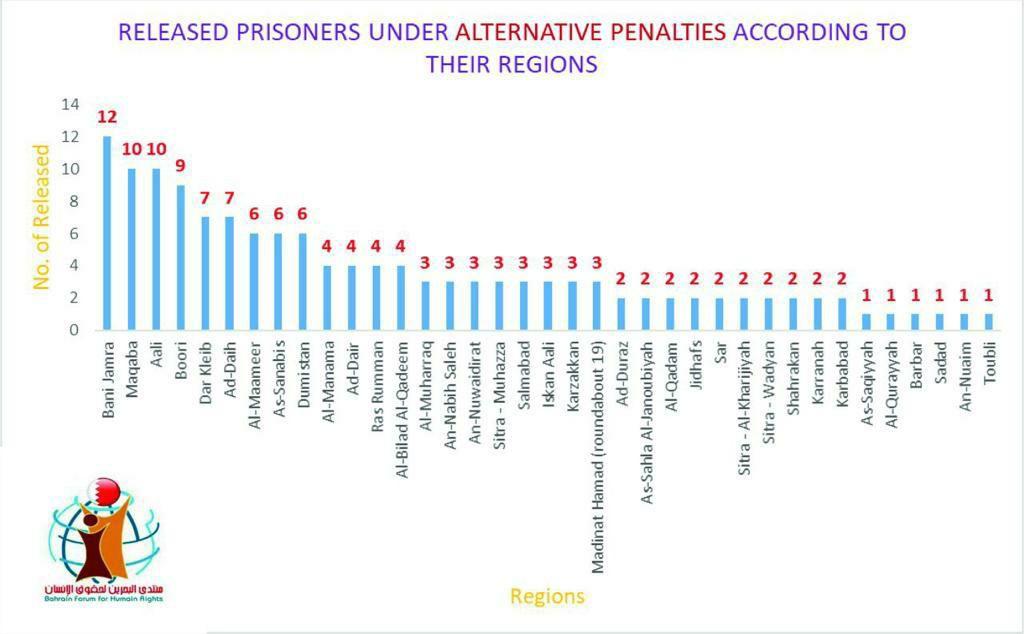
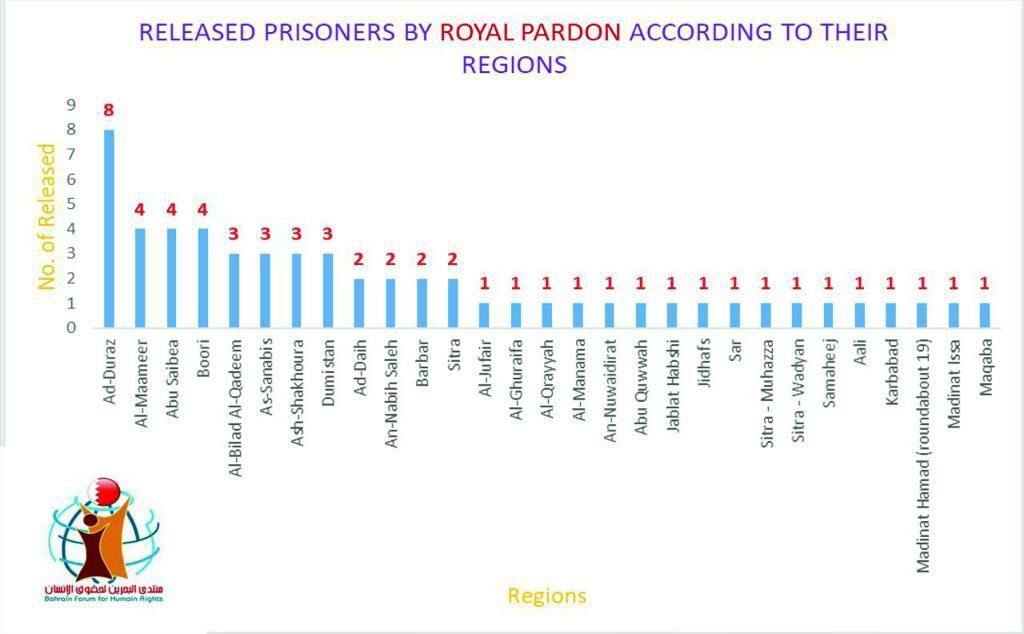
By release dates: 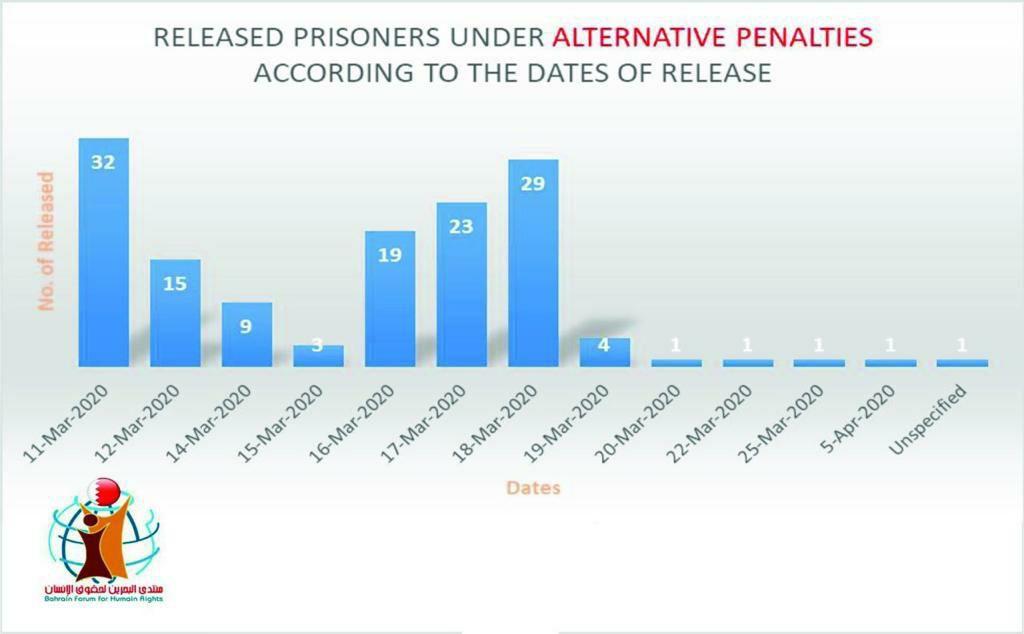
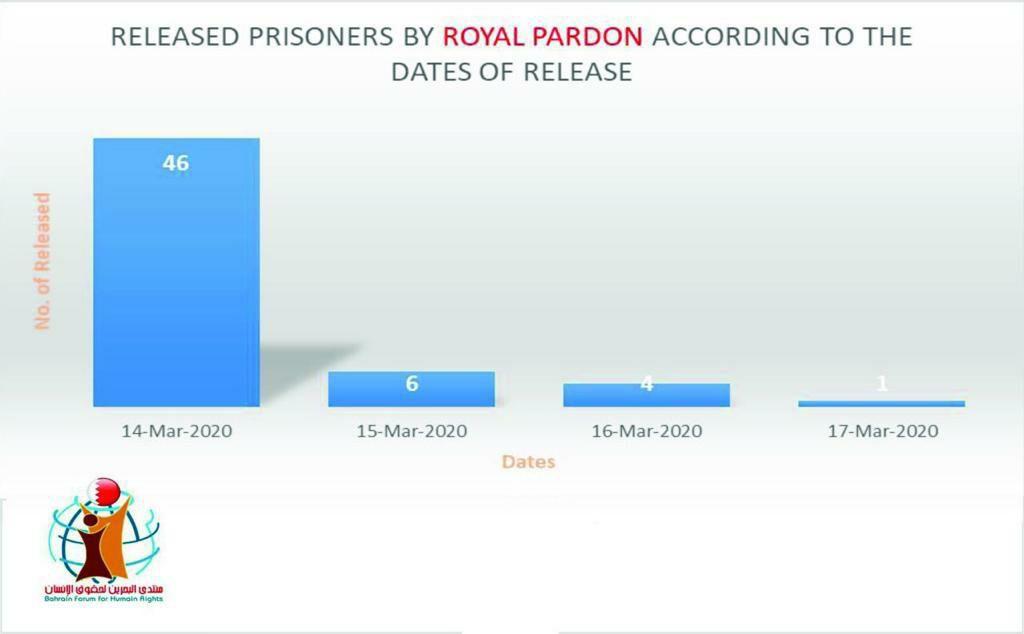
|